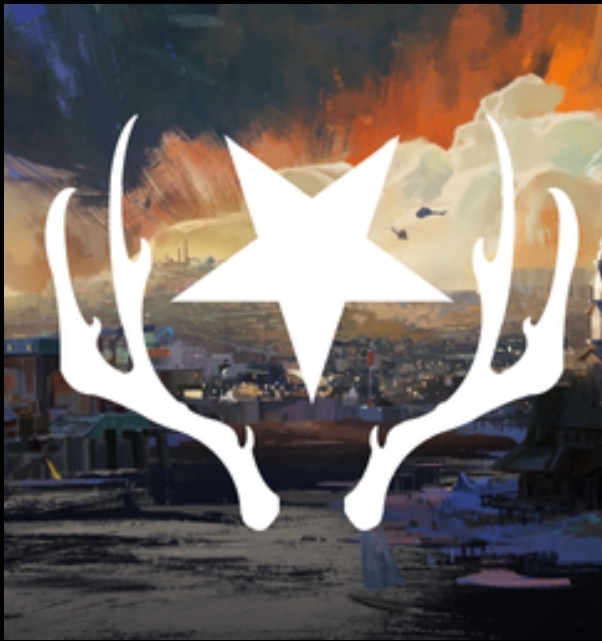The classic one is probably good for a well rounded revolutionary, but it’s kind of long for a beginner, and there’s also newer theory that’s not included, but is necessary for understanding todays material conditions. It feels weird sending baby leftists a long list of old dense texts. I’ve been sending people Principles of Communism, five essays on Philosophy, Blackshirts and the Reds, and the Red Deal. Is this a good idea? I feel like it’s important to inform modern MLs of socialist history, and also I should probably add some works on imperialism. Any thoughts?
I was actually talking with a friend about something related. I think there would be a lot of value in taking something like The State and Revolution, and making a version with modern context. Basically keep all the core arguments it makes, but replace examples with ones relevant to people today that they can easily relate to.
A lot of these works were written with the goal of organizing people at the time, they weren’t really envisioned as educational materials for people in the future to use. And we do need easily accessible materials that teach sound theory that people can digest easily and relate to.
Plug for this excellent work from Luna Oi
Edited to correct typo.
Oh, I haven’t seen this before. Thanks for sharing, comrade. I was not aware this was available in English.
I agree that study guides should be updated and that for a basic study guide that one is a bit long and could be overwhelming. I always like sending people Blackshirts and Reds early on. Everyone recommends Principles of Communism, and for me it was the second work I’ve read (after the Manifesto) but I don’t know how important it really is. It does answer some important questions but for me at least it wasn’t that much of an impactful or formative work at the start. Maybe I’m just misremembering but I would like to hear if anyone had similar experiences. I still do like Lenin’s Karl Marx and The Three Sources and Three Component Parts of Marxism as foundational works but I read those a bit later on so I don’t know how they are for someone just coming into Marxism. The Five Essays I do like but I’m not familiar with the Red Deal so I can’t comment on it. Also something like State and Revolution and What is to be done? are also very important IMO, but the latter needs a bit more context before jumping straight into it I think.
I think socialist history is in good part already covered through Marxist theory in general. Imperialism is definitely important but I don’t know which works I would recommend apart from Lenin’s. I don’t know what the best book about modern day imperialism is. I know there is work by Michael Hudson, Zak Cope, Samir Amin, Emmanuel Arghiri, etc. but I don’t know which I would recommend.
More and more I think Losurdo should be included fairly early on. His writings on a lot of topics are very clarifying, even for more advanced Marxists, and I think should be studied more widely. Maybe a good start would even be some articles like this one? Again, I guess it depends on where the person is coming from.
Principles of communism is just a good work for beginners to know “what is communism?” “What is capitalism?” “What is the proletariat?” And so on. I recently finished “what is to be done” and I think it is very important to avoid bowing to spontaneity, but there’s also a lot of very context specific things that are often dogmatically copypasted. I’ll have to read those works of lenin. Five essays on philosophy is a compilation by foreign languages press of ‘on practice,’ ‘on contradiction’ and some other important works of Mao. The red deal is a US specific work about decolonization.
At first, I thought “What do communists need a Machine Learning guide for?” Then I got it…
optimizing the revolution!
I was recommended this study guide sometime ago by a Chinese Comrade. What do y’all think?
I’d suggest that study guides should be specific to the student, their location, educational background, class, and current politics. So maybe it’s worth having themed study guides?
I agree with this and think it’s a very important point. I always try to tailor my reading recommendations to people based on their current knowledge and positions, especially for the first few works I’m recommending to get them ‘hooked’ so to speak.
I think that’s right. Once you’ve got the bug, you won’t want to read anything else for a while. But it can take some work to undo just enough bourgeois ideology that the other person is willing to read Marxists with an open mind.
I can’t really remember what did it for me. There was, as you might expect, some linear progression followed by transformative leaps. One of those was reading Marx dunk on liberals in Capital. I was well versed in classical liberalism and seeing Marx tear them apart was eye-opening. I needed to know how he did it, which led me down a rather theoretical path of trying to understand dialectical materialism. Once I cracked that, I read quite a lot of Lenin’s works because I needed to know how the theory applied practically in revolutionary times. Each of these stages do overlap, though—I’m something of a polygamous reader so I tend to have a few works on the go at any one time.
There was, as you might expect, some linear progression followed by transformative leaps.
Absolutely. For me it was firstly reading the Manifesto and realizing that what was described there as bourgeois society was in fact very similar and at its core had the same contradictions as our bourgeois society today. I was already primed for radicalization due to my circumstances at the time. Secondly, it was reading Lenin, specifically State and Revolution where I got a sense of how these things could work in practice. I still didn’t really understand dialectical materialism at that point. After some time in this phase I decided to really dive into diamat. Finally understanding it, I would say, was the third and most significant leap for me. After that I kept on reading any Marxist theory that would expand my understanding and help me become a more well rounded Marxist. I even went back to revisit some works I had already read, this time with a deeper understanding. This last part is a life-long process, though - we never stop learning.
Each of these stages do overlap, though—I’m something of a polygamous reader so I tend to have a few works on the go at any one time.
Same for me. I even sometimes end up dropping some works if I’m reading too many or other, more interesting ones. I do try to come back and finish them all, but it doesn’t always work out.
How well does chat gpt work for that kind of prompt? I remember reading stuff that it works well for tailored study suggestions.
GPT can be pretty useful for saving time wordsmithing, but you have to be careful with it because it can just make shit up too. I’d use it to help with producing reading materials and stuff, but I wouldn’t use it as an interactive study guide for example.
I’m unsure. I’ve never used it. I’d say the human element is going to be important, though, because it’s part-propaganda and we can’t leave that to AI unless it’s just to curate the list and then to check it before sharing it.
Not new, but On Contradiction is a short read and Mao’s writing on dialectical materialism is so accessible for people who might have a hard time wrapping their head around the process from classical Marxist texts. Should definitely be included
It’s one of the works in 5EOP
I wanted to either write a text or do one of those images recommending specific books a while ago but ended doing nothing. It would be awesome to have something specifically done by Lemmygrad, to be honest.








